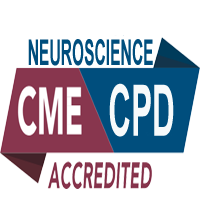
Alok Sharma
NeuroGen Brain & Spine Institute, India
Title: Clinical results of Stem Cell Therapy in Neurological Disorders
Biography
Biography: Alok Sharma
Abstract
Stem cell therapy has shown great potential as a treatment strategy for neurological disorders. Autologous bone marrow mononuclear cells have shown a positive outcome in these disorders due to their obtainability, safety and efficacy. In autism, out of 32, 92% cases showed improved social interaction, emotional response, speech and communication, behavior, cognition and sensory aspect on ISAA, CGI and FIM/WeeFIM. In cerebral palsy, 95% out of 40 patients showed improvements in oromotor activities, neck control, sitting balance, standing, walking balance and speech. These improvements correlated with improved brain metabolism recorded in the PET CT scan. In spinal cord injury, 91% out of 110 patients in thoracolumbar SCI and 74% out of 56 patients with cervical SCI showed improvement in spasticity, sensation, trunk control, bladder management, standing and sitting balance, ambulation and ADLs. Changes were recorded in ASIA, FIM scale and electrophysiological studies. In head injury, 93% out of 14 cases showed improvement in balance, voluntary control, muscle tone, memory, oromotor activities, cognition, coordination, speech, communication, ambulation and ADLs. In muscular dystrophy, 86.67% out of 150 showed improved strength in trunk, upper and lower limbs along with gait. 6 patients demonstrated muscle regeneration on musculoskeletal MRI and 9 showed improvement in EMG. In ALS, as compared to the control population (n=20), the survival duration of the treated population (n=37) increased by 30.38 months. In Stroke, improvements were observed in ambulation, hand function and standing and walking balance with ischemic stroke demonstrating better recovery than haemorrhagic stroke. No major adverse events were reported.

